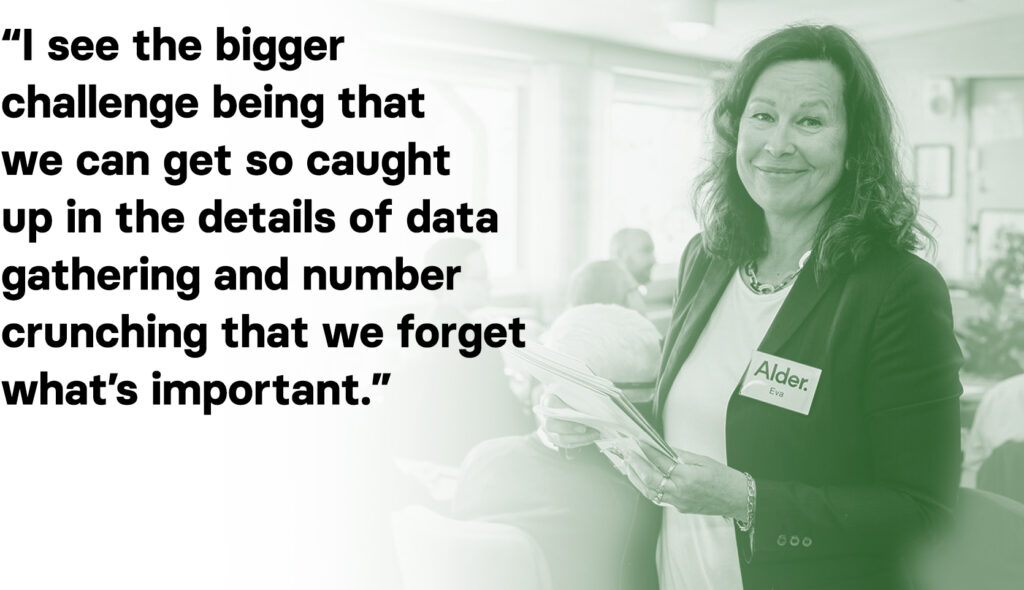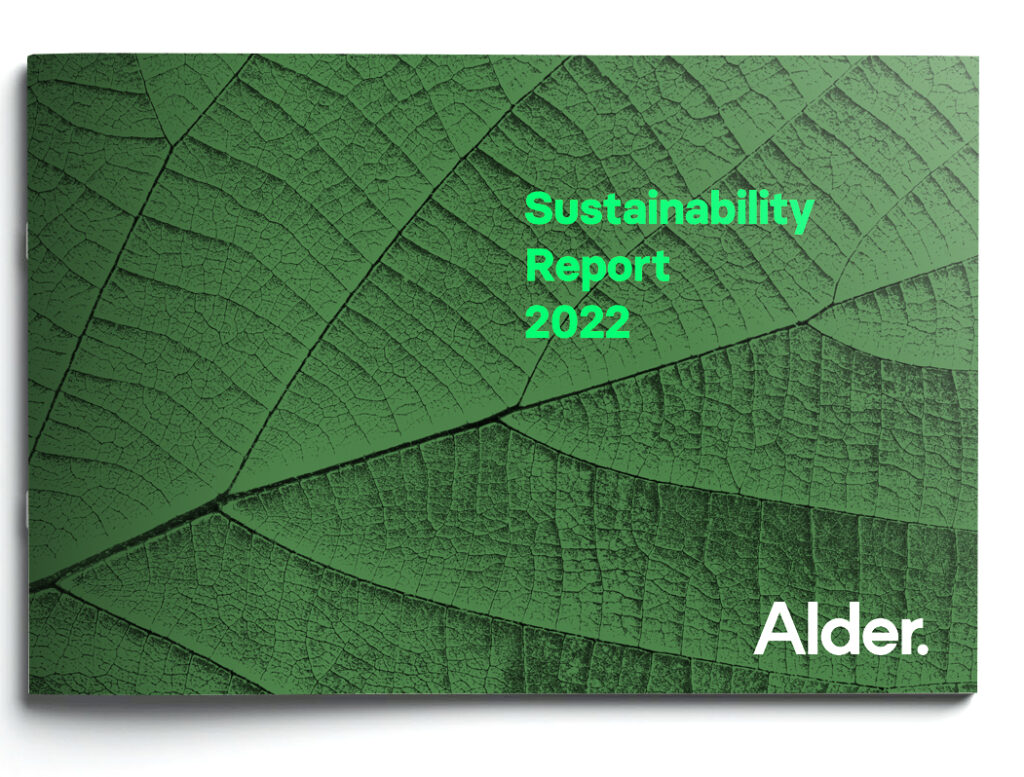2023-05-16
Navigating the world of reporting regulations
An interview with Alder Sustainability Manager, Eva Normell

Eva Normell joined the Alder team as Sustainability Manager in 2021. Here we talk to Eva about how she keeps on top of the ever-changing field of sustainability reporting regulations and ask what companies need to consider when working with them.
Can you tell us about your role at Alder?
Eva: My role as Sustainability Manager is to support the Alder team with the knowledge and tools to find companies that are aligned with our values and ambitions. I also work closely with our portfolio companies to help them integrate sustainability into strategy and leverage their positive impact while also reducing the environmental footprint of operations. We want to be part of driving the European Green Deal and be a role model for what's needed to make business part of a resilient future.
What are some of the new and forthcoming EU sustainability reporting policies and regulations that companies like Alder need to be aware of?
Eva: Over the last couple of years, the EU has released several new sustainable finance regulations in line with the EU Green Deal. The SFDR and the EU Taxonomy lie at the cornerstone of this effort, and they are both super ambitious and are changing the dynamics of sustainable finance.
How do you prepare Alder and its companies to comply with these regulations?
Eva: We prepare in many ways. The first step is to keep track of how the regulations and guidelines evolve. We are aligned with the SFDR from January 2023, as required, but the regulations are so new that they are a bit like a moving target.
Since 2021 we have been working on our companies' EU Taxonomy journey - understanding and adapting to determine their eligibility and alignment and to describe the contribution they make to sustainability using this new language. We have performed a thorough GHG inventory to become serious participants in the "race to zero" and learn more about our emissions throughout the entire value chain, including scope 3. We also track data across all our companies to regulary report on Principle Adverse Impacts (PAI).
New for this year, we have chosen to implement a common Sustainability Management platform that automates the collection, processing and visualization of sustainability data using SustainLab's tools, which will make things much easier to access understand and track in the coming years.
"Focus on value creation and what you want to achieve!"
What are the main challenges of regulation alignment?
Eva: For many companies, the obvious challenges are usability, lack of availability of ESG data, data gathering problems, and inconsistent use of terminology. But I see the bigger challenge being that we can get so caught up in the details of data gathering and number crunching that we forget what's important. We fail to focus on improving how we work, reducing and improving resource use, cutting emissions and leveraging and supporting companies with positive environmental impact to take faster and bigger steps.
Other challenges are securing enough in-house ESG expertise, awareness and training, and integration of sustainability into business models and strategies. One particular challenge for Alder with the EU Taxonomy is that it is trying to definitively define sustainability, but it is actually not comprehensive. At Alder, we look deeper into the mechanics of a sustainable economy and find companies playing critical roles in monitoring, communicating and controlling resource use, efficiency and safety. Many of these areas are not yet included in the taxonomy, but they are important to enable their customers to be sustainable. We hope that the taxonomy will not limit the definition of sustainability so that we don't see the economy in all its richness and inventiveness because it is just this that we really need for the transition.
All these new requirements may seem daunting to many companies, but what are the benefits or opportunities they pose?
Eva: They are a great way to create trust. For example, since all our funds are categorised as Article 9 according to SFDR, our investors have a guarantee that we are serious and that sustainable investments are our main objective. When it comes to the Green Deal, there is an opportunity to be part of a unified language and approach, which will hopefully create a whole new level of understanding. These more transparent ways of measuring sustainable activities, aim to avoid greenwashing, so that investors can be sure they are contributing to real change.
Do you have any advice for other companies about how to keep on top of new directives and regulations?
Eva: Focus on value creation and what you want to achieve! You can't avoid the groundwork, so do it in a way that you can manage moving forward. Start measuring, even if it is not perfect, so you have a baseline. And perhaps most importantly, be brave! Don't let the regulations put you off, we need to make bold changes to create a resilient future. The regulations provide a valuable framework for sustainability efforts, but they should just strengthen your work and not dictate what you want to achieve.
Alder's portfolio company Insort merges with TriVision
Austria - Kirchberg, 24.4.2025 - TriVision Joins Forces with Insort and Qcify to Advance Food Packaging Inspection, Food Inspection, and Food Sorting Backed by Alder.
Interview: Gustaf Folke, Biosphere Intelligence
With a wealth of experience in strategy consulting and business management, Gustaf Folke established Biosphere Intelligence in 2022 with his brother, Peder Folke. The organization aims to rethink how science is packaged and radically shorten the time it takes for planetary insights to reach people and businesses. Their training is based on vetted sustainability science and is delivered in an engaging and easy-to-consume way tailored for businesses.
Alder's portfolio company Insort merges with Qcify
Austria - Kirchberg, 25.3.2025 - Insort and Qcify are joining forces as strategic partners in food sorting and inspection, reinforcing their shared vision of driving technological innovation and automation in food processing through advanced vision solutions.

